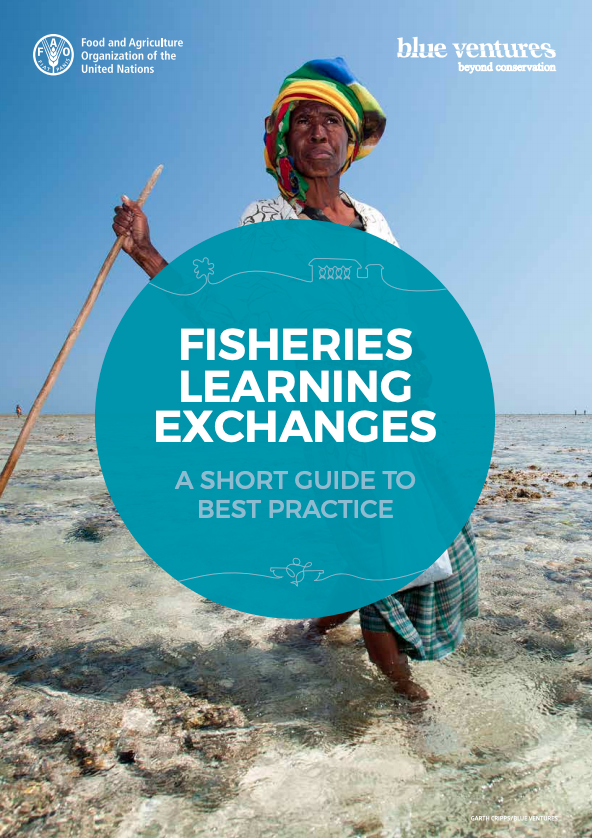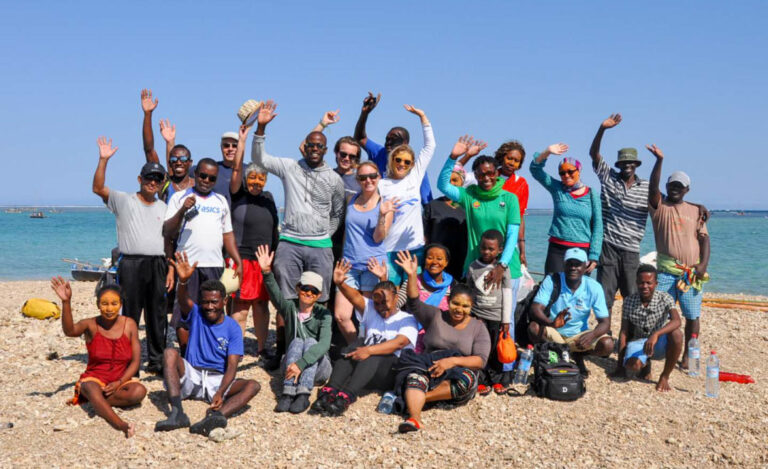On World Fisheries Day, a new best practice guide has been launched to help coastal communities reverse the accelerating loss of fish stocks in the tropics.
 A collaboration between the United Nations Food and Agriculture Organisation (FAO), Blue Ventures Conservation and the research initiative FLExCELL, a guide for local fishing communities in the tropics has been published, setting out how they can exchange best practice fisheries management with each other.
A collaboration between the United Nations Food and Agriculture Organisation (FAO), Blue Ventures Conservation and the research initiative FLExCELL, a guide for local fishing communities in the tropics has been published, setting out how they can exchange best practice fisheries management with each other.
Building on a successful knowledge sharing model developed by Blue Ventures, it empowers fishers to learn from each other about the best way to conserve and manage their local fish stocks.
This has already led to the replication of locally led marine management initiatives across Madagascar. There is now a grassroots network of 190 sites that are managed at a local level, covering 17% of the island’s seabed. The aim now is to use this best practice guide to support small-scale fishing communities across the tropics to learn from each other in the most effective way.
The vast majority of small-scale fisheries are data deficient or dangerously overfished, leading to the decimation of local marine resources. As a result, at least $50 billion is being lost every year through mismanaged fisheries. This is having a particularly devastating impact in the tropics. More than 90% of the world’s 120 million fishers operate in the small-scale fisheries sector, most of whom live in low income tropical nations.
Alasdair Harris, Executive Director of Blue Ventures said:
“Fishing communities in the tropics are facing an unprecedented level of threats which are wiping out fish stocks. But local fishing communities can help to reverse this damage by sharing best-practice. These exchanges are already transforming the lives of fishers across the tropics, boosting conservation and sustainable marine livelihoods. This guide can scale up that effort by empowering fishing communities across the tropics to help each other.”
The new guide, ‘Fisheries Learning Exchanges – a short guide to best practice’, provides guidance on developing, implementing and evaluating fisheries learning exchanges where communities have successfully found ways to manage their fisheries. The publication draws on experiences from dozens of learning exchanges over the past decade to present actionable, accessible advice and best practice. These have taken place between communities in many countries including Mexico, Mozambique, Tanzania, Comoros and Indonesia among many others.
After attending the reopening of a temporary octopus fisheries closure in Andavaoaka, Madagascar, held during a fisheries learning exchange, Mwapondera Said Athumani, a local community leader from Tanzania said “I have never witnessed anything like this before – a community coming together to open a closure that they decided to close voluntarily. It’s very rare to find community mobilisation and collaboration like this. I hope to be able to share this with my community and encourage them to follow this example.”
The new guide builds on the recent FAO publications ‘Voluntary guidelines for securing small scale fisheries’ and ‘Towards gender-equitable small-scale fisheries governance and development” and will now be promoted to fishing communities around the world.
Access the new guide: Fisheries Learning Exchanges: a short guide to best practice
For more information: Contact Rupert Quinlan [[email protected]]























